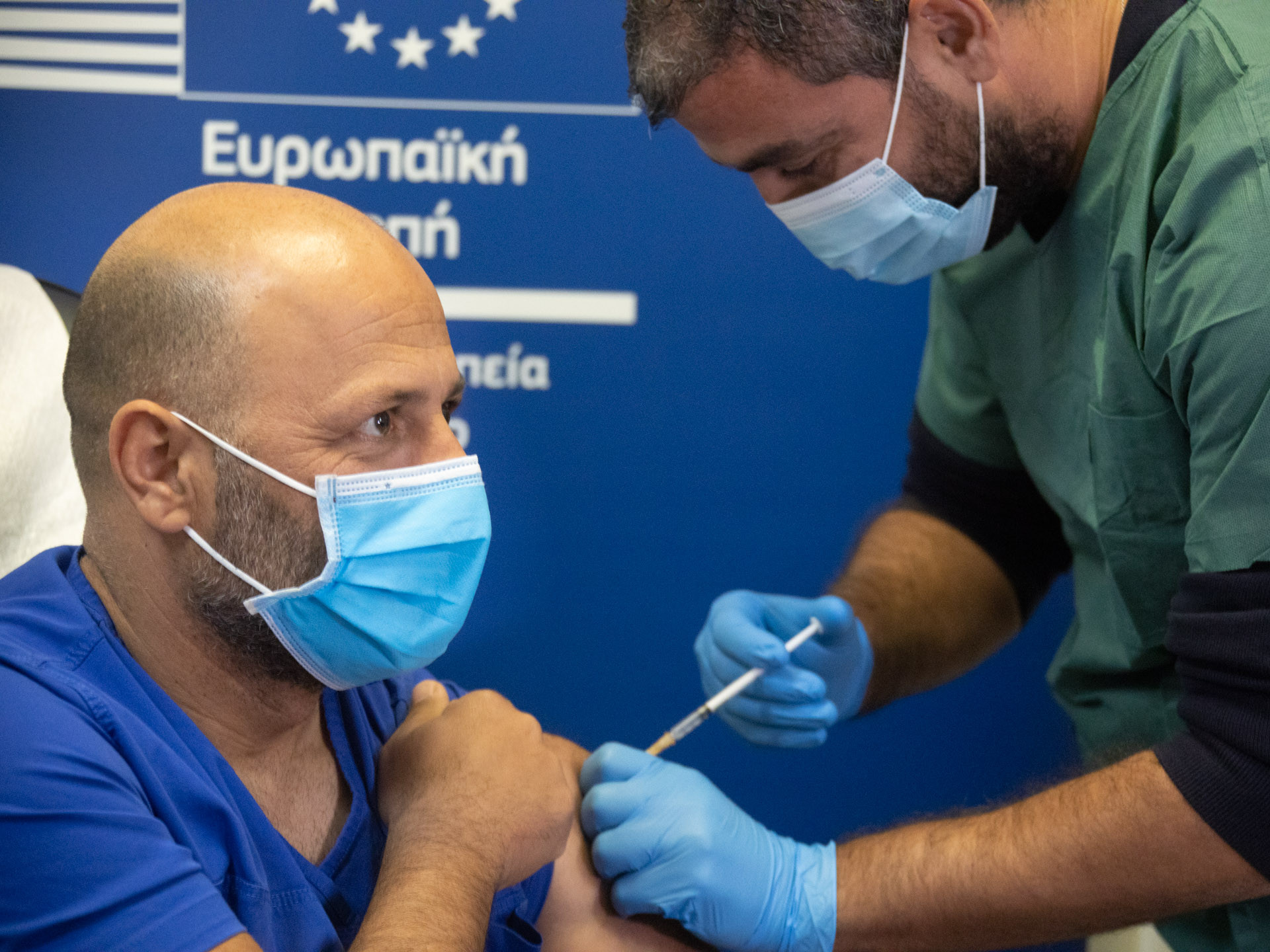Cyprus President Nicos Anastasiades is about to get vaccinated for COVID-19 on Monday morning, a day after tens of mainly senior citizens and front-line health workers were inoculated.
Anastasiades, 74, will receive his first jab of the Pfizer-BioNTech drug at the Latsia outpatients’ clinic at 9.30am in an effort to encourage more people to be vaccinated and to protect those who cannot receive the vaccine for other health reasons.
“Today is a great day, for our country and the whole of Europe,” he said after the first inoculations as part of the EU-wide vaccination programme got underway.
“Today is the beginning of the end to deter the greatest health crisis that our continent has faced in a century,” Anastasiades said.
Cyprus embarked on its national vaccination programme on Sunday with 20 front-line health workers at the dedicated Covid-clinic at Famagusta General hospital receiving the first doses by Pfizer-BioNTech.
The first batch of just under 10,000 vaccines arrived at Larnaca airport on Boxing Day and are being distributed to health centres around the country and mobile vaccination units that will visit old people’s homes.
Dr Amalia Hadjiyianni, Scientific Director of the Larnaca-Famagusta districts directorate at the health ministry said this marked “the beginning of the end of the pandemic.”
Dr Christos Kypri, chief medical officer at the Famagusta hospital Covid-reference clinic said that with the frontline health workers being among the first recipients of the vaccine, “we can give the right messages to the public and stop the spread of fake news.
“I realise many have doubts, it is something new. That is why we are the first to be vaccinated, to give reassurances to everyone,” Kypri said.
Andreas Raounas, an 84-year-old resident at the Melathron old people’s home in Nicosia said the vaccination is the only way to beat the coronavirus. By Sunday, 154 patients were receiving coronavirus treatment at state hospitals that are working at near capacity.
“We cannot allow for some of these people [health workers] to be struggling for our lives and some others criticise and attack this programme,” he said.
Panayiota Loizou Phylaktou, 88, a resident at the same care home, said she told her doctor she wanted to be the first to be vaccinated.
“I can see my grandchildren again”
“As soon as my son and his wife are vaccinated, only then can I see my grandchildren again,” she said.
Visits to old people’s homes were banned from September when several clusters of SARS-CoV-2 were discovered among many senior citizens, who account for nearly nine tenths of all deaths to date, half of which occurred in December alone.
Since the pandemic started, Cyprus has diagnosed 19,657 cases of SARS-CoV-2 and reported 112 deaths.
Health Minister Constantinos Ioannou said “the licensing of the vaccine and the start of the vaccinations allows us to view the future with optimism and start the countdown for the end of this global adventure, the likes of which we have not had in our recent history.”
EU Health Commissioner Stella Kyriakides and Health Minister Ioannou welcomed the first shipment of vaccines at Larnaca airport before they were transported under police escort to a location where special storage freezers are kept.
“Today is a milestone in the efforts of Europe and the rest of the world to tackle this huge health crisis,” said Ioannou.
Cypriot EU Commissioner Kyriakides tweeted: “This is an emotional moment. After months of hard work, the day of the first dispatches of COVID-19 vaccines is here.
“Thousands of doses are being delivered to all Member States at the same time. This is solidarity and unity in action.”
According to Cyprus’ vaccination programme, the first recipients are senior citizens over 80, people over 75 considered to be vulnerable to the deadly disease, and front-line health workers.
25,000 vaccinated by end-January
By the end of January, 50,000 vaccines are scheduled to arrive for 25,000 people.
Cyprus intends to inoculate the island’s entire population of around a million, including Turkish Cypriots in the occupied north, although getting the vaccine is not compulsory.
Permanent Secretary of the Health Ministry Christina Yiannaki said that the high number of cases in the community is worrisome and called on people to follow the measures and adhere with the decrees in place.
Christis Loizides, Chief Executive Officer at the State Health Services Organisation, said that only if the population gets the vaccine will we be able to fight the pandemic and see the light at the end of the tunnel.
Nurse Marios Polydorou said that this is the beginning for the containment of the pandemic, adding that things were very difficult at the beginning, but now they are more prepared, however the situation is still risky.










